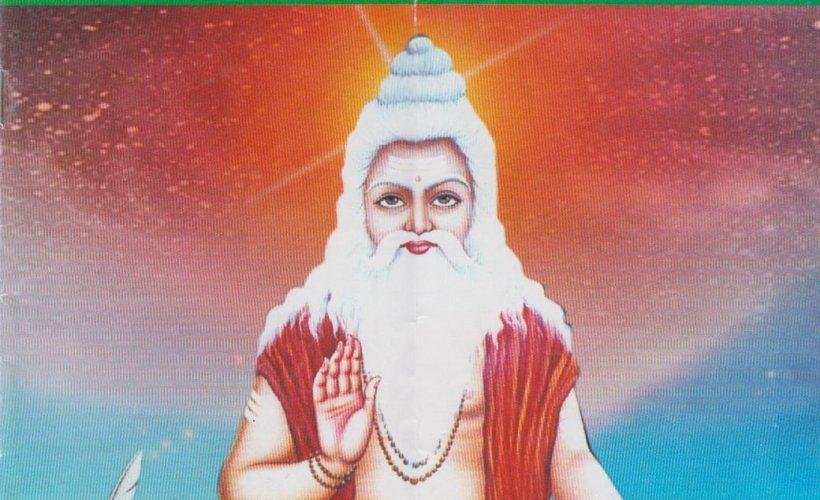Explore Gotras

Mudgala: The Sage of Simplicity and Detachment in Hindu Mythology
Sage Mudgala is a revered yet less commonly highlighted figure in Hindu mythology, known for his exceptional simplicity, spiritual detachment, and steadfastness in dharma. Celebrated in the Mahabharata and other texts, Mudgala’s life reflects the essence of karma yoga—the path of selfless action. His legacy continues through the Maudgalya gotra, making him a symbol of ethical living, restraint, and divine focus.
1. Origins and Lineage
Mudgala in the Vedic Tradition:
Mudgala is regarded as a sage from the Vedic era, associated with a line of seers who upheld spiritual discipline and the transmission of sacred knowledge. His name is the origin of the Maudgalya gotra, a respected Brahmin lineage.
Parents:
The scriptures do not clearly mention Mudgala’s parents. However, he is often portrayed as spiritually self-sufficient—emerging as a great sage through his own austerities and realization. His prominence arises not from birth but from character and inner strength.
2. Mudgala’s Role in Hindu Mythology
Prominence in the Mahabharata:
Mudgala’s story is found in the Mahabharata (Shanti Parva), where he is depicted as a grahastha (householder) who lives with absolute contentment and minimal needs. Despite having little, he generously performs ishtis (sacrifices) and gives away whatever food he receives.
Test of Renunciation:
According to the Mahabharata, Indra offers him entry into heaven due to his righteous deeds. However, when Mudgala inquires and learns of the impermanence and hidden flaws of heavenly pleasures, he declines and continues his earthly spiritual journey—proving his supreme detachment.
3. Mudgala’s Contribution to the Vedic Tradition
Path of Karma Yoga:
Mudgala lived an ideal life of karma yoga, performing duties without attachment to results. His life becomes a living commentary on the Bhagavad Gita’s teaching: “Karmanye vadhikaraste…” (You have the right to work, but not to the fruits thereof).
Spiritual Clarity and Simplicity:
His conduct demonstrated that deep spirituality does not require renunciation of household life but the renunciation of ego and desire. He embodied the power of inner detachment, even while engaging in worldly responsibilities.
4. Mudgala’s Role in Hindu Tradition
Model of an Ideal Householder:
Unlike many sages who abandoned family life, Mudgala upheld dharma while remaining in society. His example offered a new spiritual model—proving that liberation is not limited to monks or ascetics.
Respected Ancestor of the Maudgalya Gotra:
His descendants, known as Maudgalya Brahmins, continue to revere him as their spiritual forefather. His teachings form the moral and philosophical foundation of their lineage.
5. Mudgala’s Legacy in Hinduism
Symbol of Contentment (Santosha):
Mudgala’s unwavering contentment in all circumstances made him a spiritual beacon. He represents the value of santosha—being happy with little and focusing on inner fulfillment.
Moral Strength in Testing Times:
Even when faced with temptations from divine beings and offers of celestial pleasure, Mudgala remained rooted in truth and detachment. His life exemplifies moral strength and spiritual maturity.
6. Mudgala’s Influence in Hinduism
Ethical Foundations of Dharma:
Mudgala emphasized that right action and internal purity are more important than ritual show or material offerings. His ethical clarity became part of the foundation of dharma as lived philosophy.
Legacy in Vedic and Puranic Thought:
Though he did not compose major texts, his way of life is documented in epics and used as a reference in philosophical discussions about detachment and spiritual realization.
7. Conclusion
Sage Mudgala’s life is a rare and shining example of how deep spirituality can exist in the midst of everyday life. He taught by example that vairagya (detachment) is not a matter of place but of perspective. His humble home became a site of sacrifice, his simple life a lesson in divine contentment. Though not as widely known as some other sages, Mudgala’s contribution to the spiritual ideals of Hinduism is timeless and profound—making him a silent giant in the forest of Vedic wisdom.
